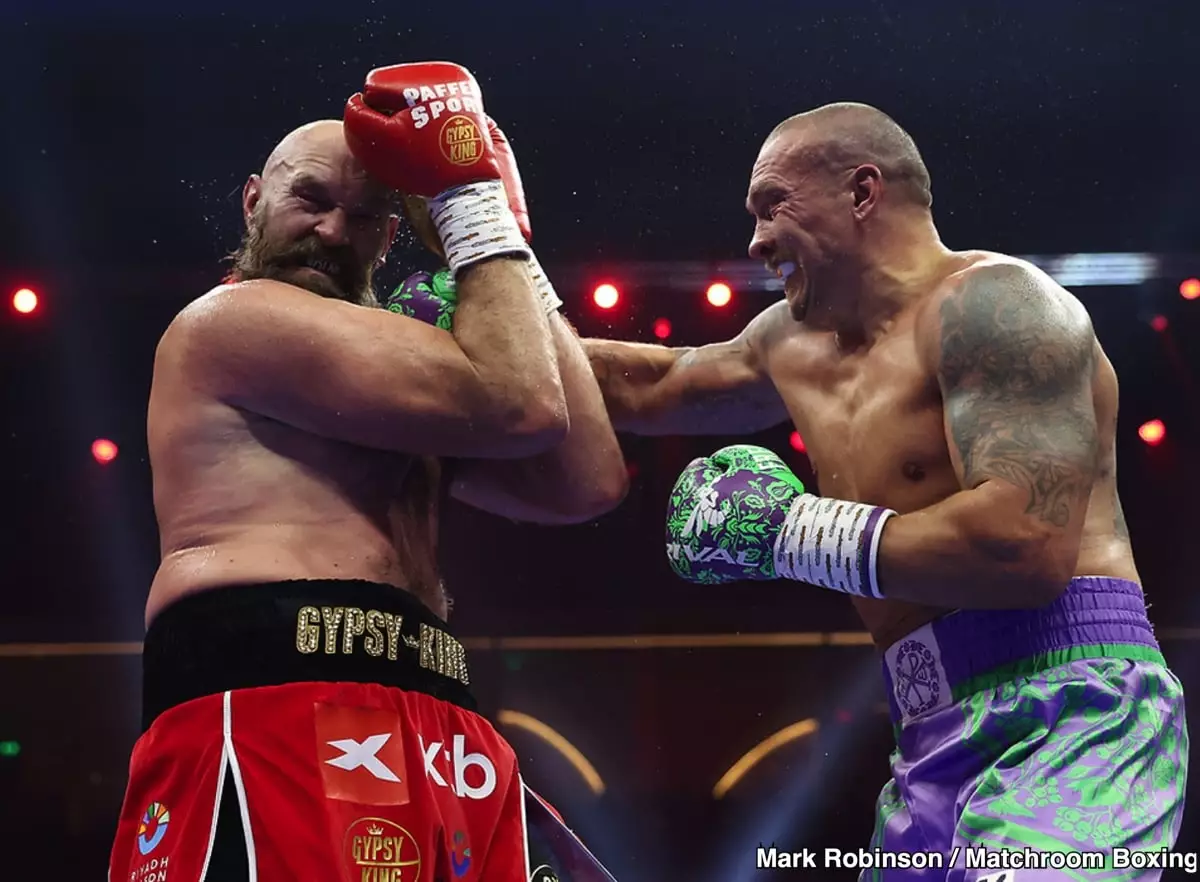In the aftermath of the recent rematch between Oleksandr Usyk and Tyson Fury, the boxing community has been inundated with various takes on the bout. Many discussions have devolved into predictable arguments often flavored with hyperbole and fanfare. As the boxing world revels in its favorite pastime—debating the outcome—this article seeks to delve deeper into the fight’s implications, moving beyond the superficial analyses and the noise created by fervent fans. It is clear that the complexity of this match transcends mere statistics and superficial opinions, reflecting a broader narrative within the sport.
Roberto Duran’s analysis following the fight shed light on the tactical prowess displayed by Usyk. He noted that Usyk approached the encounter with a well-prepared game plan that was executed meticulously, leading to a comfortable victory. Yet, with the rise of a retroactive narrative sparked by an outcry from Fury’s supporters, it seems that clarity is often lost. Many shine a spotlight on a distorted recollection of events, claiming that the Gypsy King’s supposed dominance was disregarded, while Usyk is unfairly portrayed as the received underdog in a sport that thrives on these dynamics.
To contextualize the present scenario, it becomes vital to look back at the previous fight that took place on that humid evening in Riyadh. In this initial clash, Usyk’s strategy paid off. Many analysts praised his precision and speed; he outmaneuvered Fury effectively and controlled tempo. Yet, dissenting voices quickly emerged, claiming that the judges were swayed by corrupt influences. Such assertions stem from a significant contingent that seems uncomfortable that their fighter—Fury—could falter against a fighter they deemed inferior.
The rise of revisionism in boxing dialogues is emblematic of a broader social phenomenon seen in many sports. Fan bias can cloud judgment, redirecting the narrative towards a version of events that suits their emotional investment. The concept of scorecards being manipulated or unfairly weighing in the opponent’s favor is a dangerous one when detached from reason. It’s vital to hold discussions rooted in the spirit of fair play and objectivity rather than succumb to the impulse of echo chambers fueled by emotional fervor.
As we transitioned into the rematch on December 21st, there was an undeniable sense of expectation. Notably, this wasn’t merely a contest for titles but also a reflection of the progress and evolution of both fighters. While Fury may have tried to exert his size advantage, Usyk’s agility and tactical superiority claimed a unanimous decision, mapping out an undeniable trajectory of his craft as a boxer. The judges’ scorecards—116-112 and a wider 118-112 from the AI—further validate the consensus that Usyk was in control throughout the contest.
However, despite the clarity of the result, the aftermath saw an eruption of misplaced confidence from Fury’s advocates. They thundered on social media platforms, insisting that their champion won handedly, with repeated assertions of a one-sided dominant performance from “The Gypsy King.” Such comments only serve to illustrate a detachment from reality, painting a picture of defeat that lacks coherence with the evidence laid out in the fight.
The reality is that boxing transcends individual performances; it encapsulates skill, strategy, and the ability to adapt. Usyk capitalized on Fury’s attempts to dominate and showcased not just resilience but skill that many had overlooked prior—and therein lies the crucial learning point for the future of both fighters.
Looking ahead, Usyk’s career trajectory now positions him at a crossroad. With rumors swirling about a possible farewell bout in Kyiv, there’s a palpable sentiment that he may wish to leave the sport on his own terms, much like other greats before him. Yet the question remains, who could potentially rise to the occasion to challenge the Ukrainian on home soil?
Conversely, the hope for a long-anticipated Fury vs. Joshua bout remains questionable, particularly with both fighters having tasted setbacks at the hands of Usyk. Such showdowns lack the championship thrill once anticipated, yet the allure of these matchups persists. History demonstrates that even when stakes appear low, the human element of competition often prevails.
The path of Usyk and Fury continues to evolve. Discarding sensationalism allows for the possibility of thoughtful dialogues about their legacies and the future of heavyweight boxing. We must celebrate the skill and traditions that shape the sport while acknowledging the collective emotional weight borne from each bout. Let us move away from mere opinions and engage with the realities of the ring—truths that, even amidst chaos, can shine luminously through.

